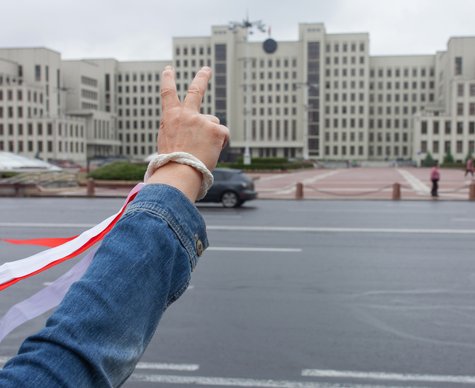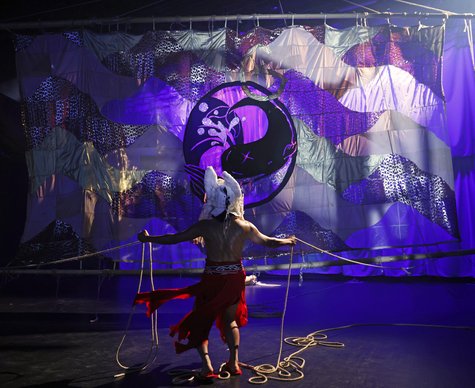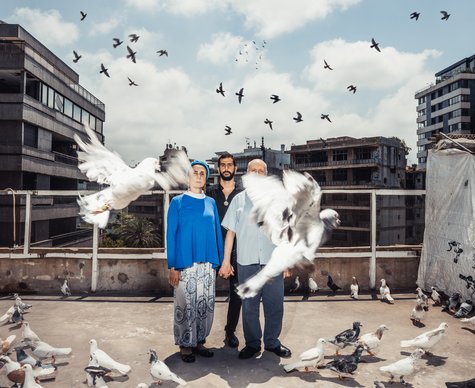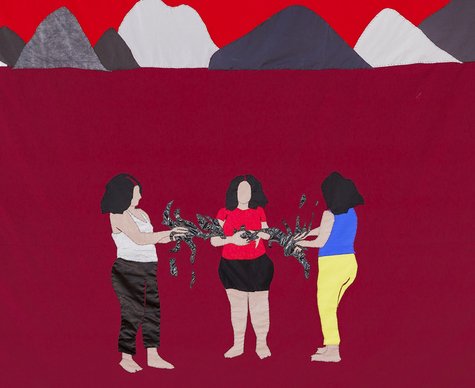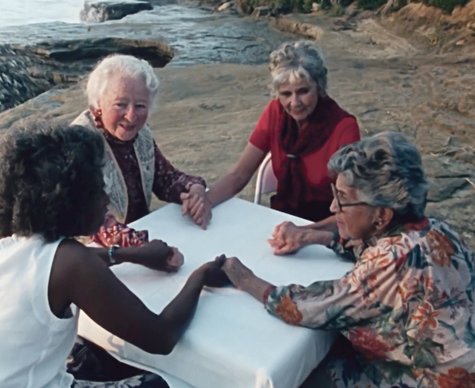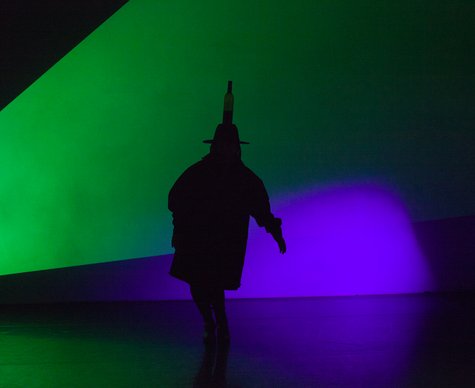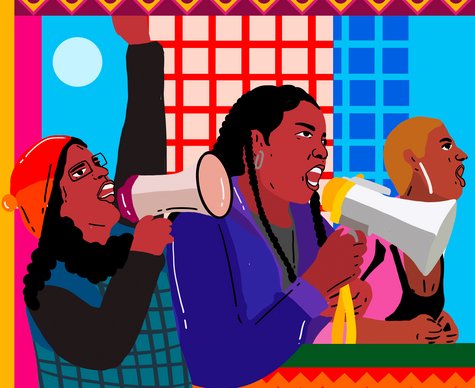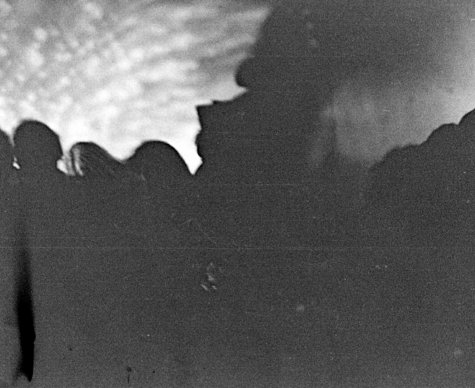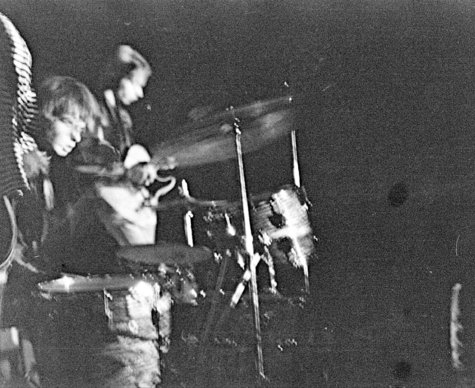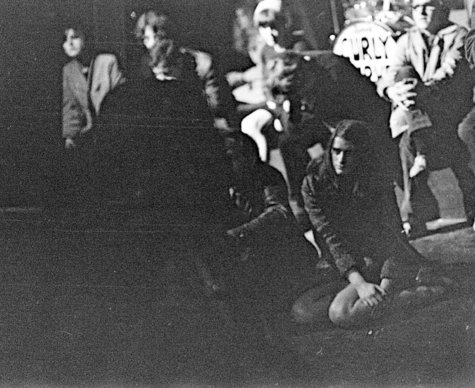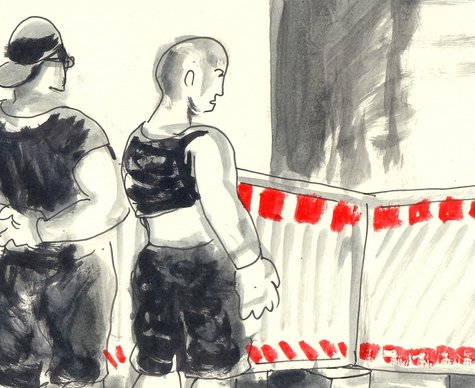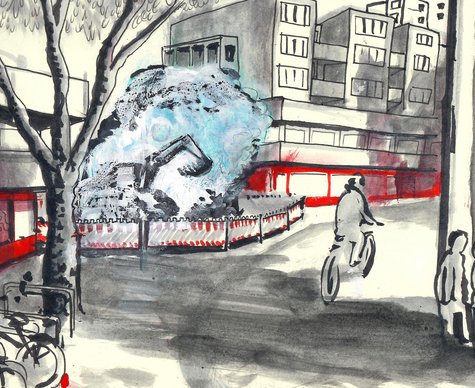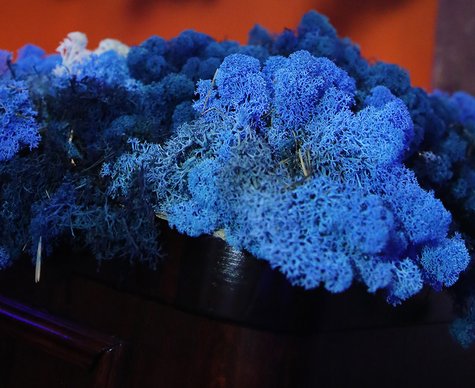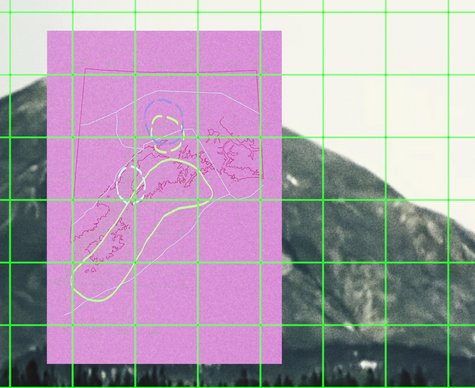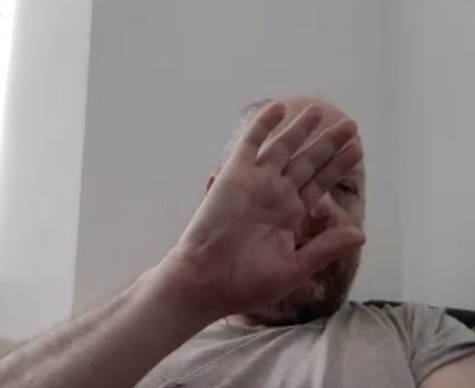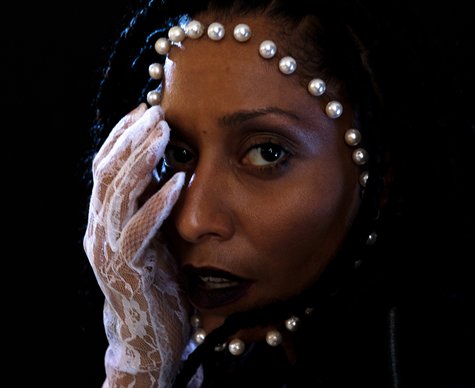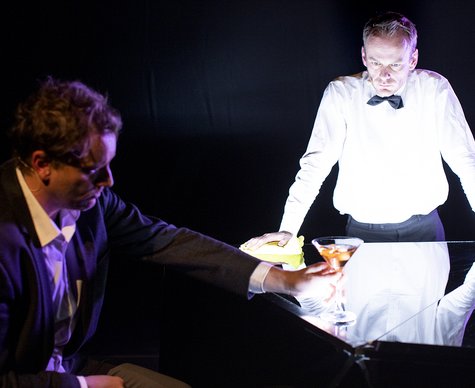Video Editing: Stefan Kraus/MXZEHN / Costume: Jakeyoung Shim / Thanks to: Olga Gerstenberger, Antony George Koothanady, Nathalie Anguezomo Mba Bikoro, I remember all of my grandparents
Sajan Mani
Tyger von otherspur
16:00–19:30
- Performance

“Germans love to hear about exotic things like maharajas and slave dancers, the Indian rope trick, and magic.”
Thea von Harbou (1888–1954), German screen writer and novelist.
Tracing the story of the thrice produced film “Das Indische Grabmal” (1921,1938,1959, The Indian Tomb) and its second part “Der Tiger von Eschnapur” (1921,1938,1959, The Tyger of Eschnapur), Sajan Mani rediscovers Indianness as an ambiguous animal. This is his answer to the question: “Are you really Indian, we have seen Indians on T.V and they are fairer?” A trained tyger trapped in Whiteman’s fantasy is the only real Indian in these films. Forget the blackened faces of white actors who acted as Indians, as maharajas and maharanis. The tyger is the only actor. Killing the tyger is the only action. Killing diabolic animals to save the minor subjects of colonised Asia was a recurrent theme in many European narratives. While defacing the humans was the first step to enslave them, imagining animal as destroyer was a tricky move to patronise them. To make itself authentic colonial conquest started representing the Orient as exotic but impoverished, erotic but impotent. Strangely enough, visual culture despite its avowed truth value, authenticated that project. Thus, tyger in the orientalist gaze became a zoomorphic avatar of danger and destruction as best exemplified in these films. But the indigenous people of India worship tyger and the distorted figure of the animal need revisit. It is not for any blame game but for recovering an animal image lost in colonial distortion and nationalist/postcolonial symbolism. Zooësis or the intersections of animal and human as in many earlier works of Sajan Mani, turns to be super politics here.
Text by Antony George Koothanady
Sajan Mani
b. 1982, Keralam, South India
Sajan Mani is an intersectional artist hailing from a family of rubber tappers in a remote village in the northern part of Keralam, South India. His work voices the issues of marginalized and oppressed peoples of India, via the “Black Dalit body” of the artist. His performance practice insists upon embodied presence, confronting pain, shame, fear, and power. His personal tryst with his body as a meeting point of history and present opens onto “body” as a socio-political metaphor. Several of Sajan’s performances employ the element of water to address ecological issues particularly related to the backwaters of Kerala, as well as to the common theme of migration. His recent works consider the correspondence between animals and humans, and the politics of space from the perspective of an indigenous cosmology. "Unlearning Lessons from my Father" (2018), made with the support of the Asia Art Archive, excavates the artist’s biography in relation to colonial history, botany, and material relations.
Sajan has participated in international biennales, festivals, exhibitions and residencies, including CODA Oslo International Dance Festival, Norway (2019); Ord & Bild, Sweden (2019); India Art Fair (2019); “Specters of Communism”, at Haus der Kunst, Munich (2017); Dhaka Art Summit, Bangladesh (2016); Kampala Art Biennale, Uganda (2016); Kolkata International Performance Arts Festival (2014–16); and Vancouver Biennale, Canada (2014). For 2019–2021 he has received an artistic research grant from Braunschweig Projects, and the Akademie Schloss Solitude Fellowship in Germany.
Cast
Dates
Location
HAU2
Hallesches Ufer 34, 10963 BerlinThere are two marked parking spots in front of the building. Barrier-free restroom facilities are available. Four relaxed seats are available in the first row of HAU2. Tickets for wheelchair users and accompanying persons can also be booked via the ticketing system. If you need help, please contact our Ticketing & Service team at +49 (0)30 259004-27 or send us an email to
tickets@hebbel-am-ufer.de.
Travelling to HAU2 via U Hallesches Tor:
If you are coming from Hallesches Tor underground station, you will have to use an alternative footpath from Wilhelmstraße / Hallesches Ufer junction, which is separated from the carriageway by a construction fence – the actual footpath is currently closed. Please note: the alternative route is also used by cyclists. Pedestrians should keep to the right. We therefore currently recommend that visually impaired or blind visitors come to the HAU with an accompanying person.
Arrival HAU2 via U Möckernbrücke:
When you leave Möckernbrücke underground station, please stay on the footpath on the canal side until you reach Hallesches Ufer / Großbeerenstraße junction – the opposite side is currently closed due to construction work.





















